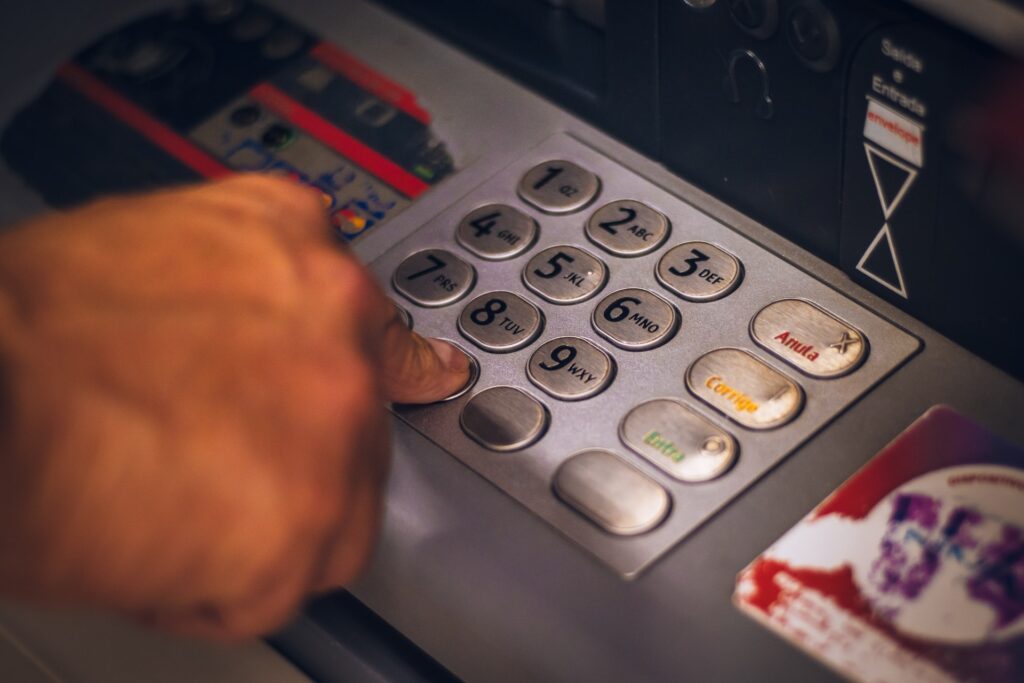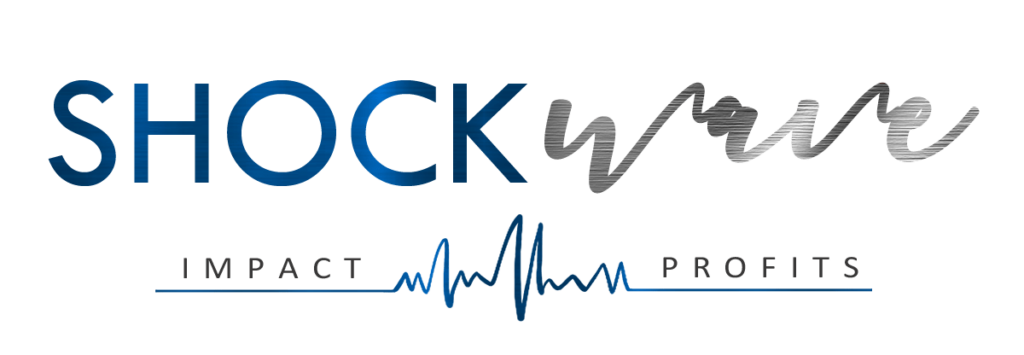High-Risk Merchant Accounts: Everything You Need To Know

By Emma Rainville
Topics:
- High-Risk Categories
- High-Risk Industries
- Fees And Rates
- Managing Chargebacks
- High-Risk Merchant Services
As a modern business owner, it is essential, even crucial, to have the ability to accept and process credit cards. This ability allows you to conduct business online, to receive credit card payments in your brick and mortar stores and shops, and make other payment processing options available to you, such as:
- Debit Cards
- Gift Cards
- Loyalty Cards
- Checks
It adds a layer of convenience that customers appreciate and helps you keep your business competitive within the local marketplace and on a larger scale. If you hope to expand and grow your business, merchant accounts that offer credit card processing services are the way to go.
But it is just as crucial to understand a few details about the way these merchant account providers view your business, and what this means for you. Most merchant account service providers are highly risk-averse. They assess companies based on the risks they represent and may deny their services to your business or label your business as high-risk based on several factors.
If they designate you as a high-risk business, it means they believe your business poses a greater financial risk to them. This determination is typically based on business/ industry-specific dangers or more general concerns like:
- Fraud
- Chargebacks – Card Not Present business operate with higher than average chargeback rates
- Acceptance of recurring payments – Continuity/Subscriptions
- Bad Personal Credit
- Processing Multiple Currencies
- Operating in industries widely designated as high-risk.
Of course, you want to know why these things matter so much to merchant services providers. The bottom line is that they prefer things to go off without any hitches. There’s not only a lot more paperwork when chargebacks occur or fraud charges are levied; dealing with these also costs them money. The lower their risk of chargebacks, disputes, etc., taking place, the happier they are to offer services at reduced rates with relaxed requirements.

High-Risk Categories
It is important to remember that not all merchant service providers have the same criteria for listing a business as high-risk. What may qualify you as a high-risk merchant with one provider may not with others.
However, there are some high-risk categories that commonly warrant the designation. If one or more of them applies to you or your business, you may find many credit card processors consider your business high-risk and schedule your fees and other requirements accordingly:
- Offshore business operating in the US or US-based companies operating internationally.
- Products or services of questionable legality, including adult products, drug paraphernalia, vape and e-cigarette products, and CBD products.
- Questionable sales and marketing activities (MLM or deceptive marketing, for instance).
- History of excessive chargebacks.
- High-Risk of Fraud (online, card not present sales).
- Bad Personal Credit.
Practically all merchant service providers aim to minimize their risks. They do this by being selective with the merchants they do business with or applying higher fees and other requirements for those they deem “acceptable risks”.
High-Risk Industries
In addition to the categories mentioned above, businesses in certain industries may also be automatically listed as high-risk merchants with most payment processors. These high-risk industries include:
- Adult Entertainment
- Air & Water Filtration
- Airlines
- Antiques/ Collectibles
- Apparel Sales
- Auto Transport, Parts & Accessories
- Business Owners with Bad Credit
- Beer, Wine & Liquor Sales
- Cannabidiol/ Medical Marijuana
- Card Not Present
- Computer Hardware
- Credit Repair
- Debt Consolidation
- Discount Buying Services
- Document Preparation
- Downloadable Software
- eBooks
- eCommerce
- Electronics
- Firearms & Ammo
- Foreign Exchange Market
- Financial Services
- Furniture
- Gambling/ Gaming
- Health Clubs/ Weight Loss
- Insurance
- Jewelery
- Legal/ Personal Injury
- Magazine Subscriptions
- Marriage Services
- Moving Company
- Multi-Level Marketing
- Nutraceuticals/ Herbal Supplements
- Online Retail
- Pawn Shops
- Pet Shops & Supply Store
- Private Airlines/ Charter Jets
- SEO/ Web Design/ Development
- Software/ Mobile Applications
- Storage Facilities
- Tech Support
- Telecommunications
- Tobacco/ Vaping
- Travel
- Warranties
This list is by no means exhaustive, but it offers a good idea of the types of businesses most merchant services providers consider to represent a greater risk and will designate accordingly.
Is your business high-risk? We can help you! Start accepting payments today!

Fees and Rates for High-Risk Businesses
If your business falls into a category associated with high-risk merchant accounts, it may be no fault of your own. That doesn’t change the fact that you need to move forward with realistic expectations of what is to come for your business. The overriding reality is that high-risk accounts cost more than those that are not identified as high-risk accounts.
Unfortunately, you’ll generally pay a considerably higher amount for the same services as low-risk businesses. Some of the “penalties” you’re required to pay as a high-risk merchant include the following:
- Higher Rates
- Higher Processing Fees
- Lengthier contract requirements (While you can negotiate, many providers require three years to begin with, including an automatic renewal clause extending the contract in one-year increments afterward)
- Early Termination Fees
- Fewer pricing options (Some payment processors have minimum rate requirements for specific high-risk merchant types)
- Reserve requirements that limit your available cash flow
- Transaction limits (Some providers limit the number of transactions you can process in a month while others limit the dollar amount of transactions you can process)
- Increased Chargeback Fees
It’s not all doom and gloom when it comes to high-risk merchant accounts. There are some benefits to keep in mind with these types of accounts, as you can do business with an international audience, something low-risk merchants cannot do. That doesn’t change the fact, though, that you do pay more for the privilege.
Managing Chargebacks
Chargebacks are public enemy number one if you are attempting to move out of the high-risk category with your merchant services provider, especially since most chargeback laws are created with the consumer in mind, not the merchant. One of the most important things you can do is to actively seek ways to reduce your business’ number of chargebacks.
Here’s something you may not know about chargebacks: roughly 86% of chargebacks, or nearly nine of every 10, are what is known as “Friendly Fraud.”
What is “Friendly Fraud?”
First, it’s best to look at the other two types of issue that occur when it comes to chargebacks:
- Merchant Error
- Criminal Fraud
Merchant errors that lead to chargebacks may include things like poor customer service, failing to respond to customer complaints, failing to issue refunds after returns are made (which occurs in 15% of chargeback cases), and failing to display terms for returning defective merchandise correctly.
Criminal fraud is something many payment processors are taking active measures to curtail. If you establish policies and participate in fraud prevention for your business, in addition to investing in equipment that uses the latest fraud detection and prevention technologies, you should be able to reduce criminal chargebacks within your business as well.
Of course, that leaves Friendly Fraud, which can include honest mistakes. Generally, Friendly Fraud is when a customer initiates a chargeback out of confusion, forgetfulness, etc. In a common example, a customer may agree to a subscription service without being completely aware of what they agreed to and then claim a chargeback when they see charges on their statement that they don’t remember signing up for.
These are chargebacks you can start to prevent by displaying specific return instructions in evident spaces on your business website and including your website or customer service number in your billing descriptor.
Another thing you can do to prevent Friendly Fraud is to kick up your customer service game a notch or two. Deal with customer complaints and go the extra mile to make sure your customers feel as though their concerns are being heard and that you want to correct the problem rather than leaving them feeling as the only recourse they have is to dispute the charges.

High-Risk Merchant Services Providers
Of course, if you are in one of the high-risk industries identified above or you’ve been identified as a high-risk merchant for some other reason, you still need a merchant services provider.
Not just any merchant service provider will do, either. You need to take your time, explore your options, and look for a high-risk merchant provider that will best benefit your business by dealing fairly with you.
Unfortunately, some payment processors and merchant service providers engage in predatory practices. Investigate the company you are considering partnering with as thoroughly as they investigate you to determine suitability for a high-risk merchant account.
- Visit their website – explore the details.
- Look for indepedent reviews of their services.
- Explore their reputation for dealing with merchants like your company.
- Read the contract; better yet, go over the contract with your attorney to determine its suitability for you and your business.
Negotiate, if there’s any wiggle room to do so, for shorter terms, lower feels, and smaller reserve requirements. You may not be able to get all the concessions you seek, but you might get a little extra breathing room for the sake of your business.
Alternatively, you could work with a merchant account broker. A broker will help you choose which merchant processors are the right partners for your business. They will also help you get the accounts set up and manage them for scale over time. Merchant processors pay the account brokers a commission for bringing them businesses, so there is no cost to you to hire a broker.
Furthermore, a good broker will take the time to understand your priorities and can leverage their expertise to help you get the best terms or provide a path to making them even better. Best of all, a great merchant account broker can make the process of choosing and obtaining merchant accounts a breeze.
Whether you’re involved in a high-risk industry or have other reasons for being identified as such, managing partner of Shockwave Solutions, LLC and Broker with Cambridge Commerce, LLC, Travis Gomez can put you on the right track without any of the anxiety. We believe we have the right services, the right knowledge, and the right tools to help you grow your business.
Click here to get in contact with Travis Gomez and get your FREE MID assessment today!


1 comment
Hey very nice blog!